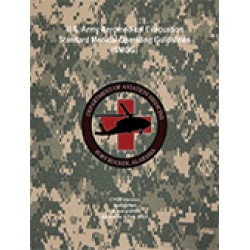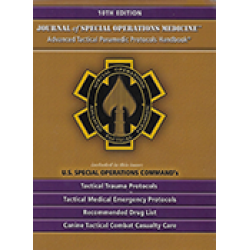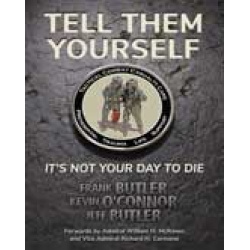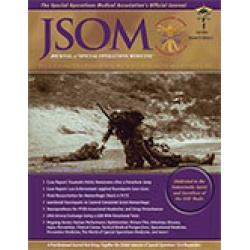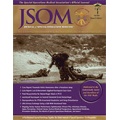A Multiyear Analysis of the Clinical Encounters of the ATF Tactical Medical Program
Tang N, Kubit J, Berrett OM, Levy MJ 14(3). 102 - 106 (Journal Article)
Background: The Bureau of Alcohol, Tobacco, Firearms and Explosives (ATF) Tactical Medical Program provides tactical medical support for ATF's tactical Special Response Teams (SRTs) and investigative National Response Teams (NRTs) through the deployment of specially trained ATF Agent-Medics. All patient care activities are centrally coordinated through ATF Headquarters. Methods: A retrospective analysis of de-identified patient care reports (PCRs) from the ATF Tactical Medical Program from 2009 to 2012 was performed. Clinical and operational data were extracted from PCRs and were entered into a database by the research team. Descriptive and summative analyses were performed to assess patient type, law enforcement incident type, chief complaint, and interventions performed. Results: Analysis was performed on the 254 charts. Nearly half (114; 44.9%) of patients encountered during the study period were law enforcement officers. High-risk warrant service was associated with one third (85; 33.5%) of the ATF medics' clinical encounters. The most common chief complaints of patients encountered were musculoskeletal pain/injury (57; 22.4%) and wounds/lacerations (57; 22.4%), followed by heat illness (17; 6.7%). The most common intervention was wound care (61; 26.9%), followed by control of bleeding with direct pressure (43; 18.9%). The most common medications administered were ibuprofen (28; 25.2%), topical antibiotic (12; 10.8%), and acetaminophen (12;10.8%). Conclusion: This multiyear analysis represents an important contribution to the growing body of scientific literature surrounding tactical medicine. The results of this analysis demonstrate a continued need for expanded scope of practice training, as well as enhanced treatment protocols for tactical medics.


 Español
Español 